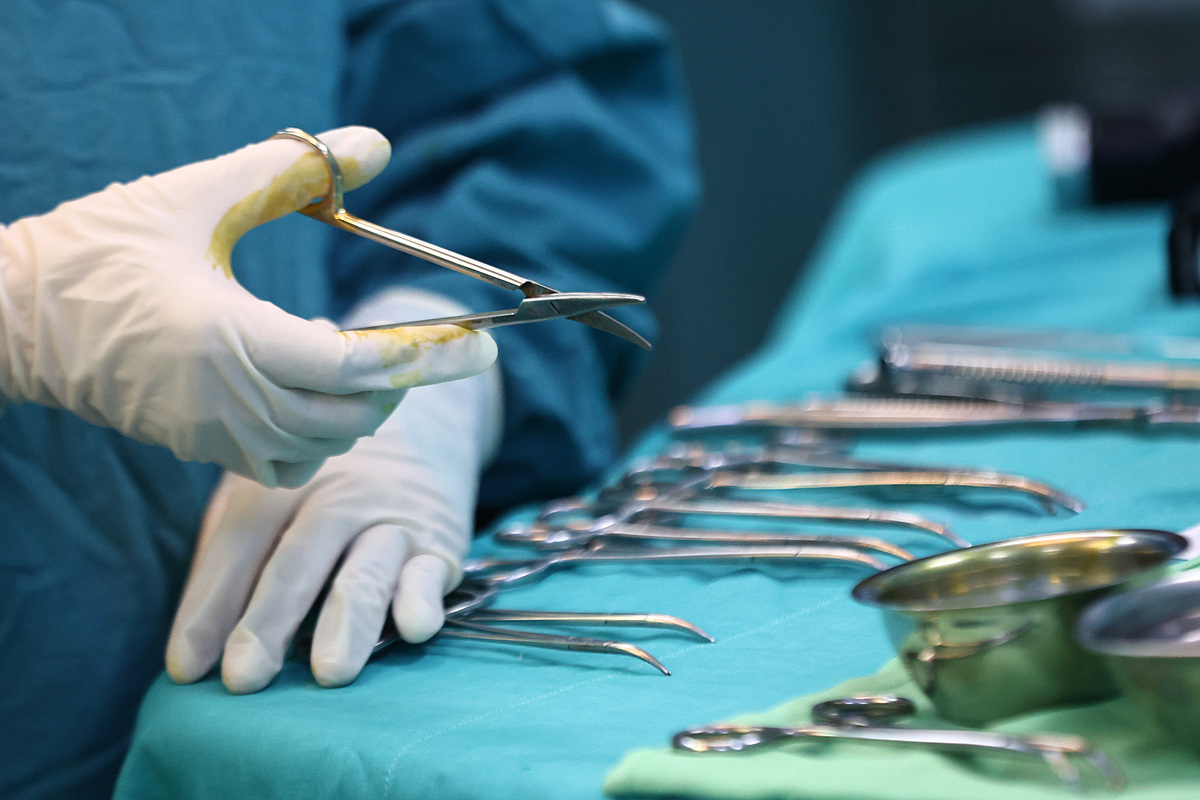The woman had given birth to her third child 20 months prior. Doctors had advised against further pregnancies due to a difficult delivery and a damaged uterus. Unaware of her current pregnancy, she experienced sudden, severe lower abdominal pain. Initially suspecting septic shock from a gastrointestinal infection combined with a 12-week pregnancy, doctors transferred her to Gia Dinh People's Hospital.
On 5/8, Dr. Nguyen Thi Minh Huyen, Deputy Head of Obstetrics at Gia Dinh People's Hospital, reported that the patient arrived in a confused state with low blood pressure, abdominal distension, and hemorrhagic shock. An ultrasound revealed a significant amount of fluid in her abdomen and a 12-week fetus with a heartbeat. Given her history of difficult childbirth, doctors suspected a uterine rupture caused by previous delivery trauma, leading to hemorrhagic shock. Emergency surgery was performed to stop the bleeding and save her life.
During the intense, hour-long surgery, the medical team worked swiftly and precisely to control the bleeding and administer blood transfusions. The patient is now recovering and preparing to be discharged.
"This case was extremely dangerous due to its vague symptoms, easily mistaken for a gastrointestinal issue. Without prompt detection and treatment, it could have been fatal," Dr. Huyen explained.
Uterine rupture is a serious obstetric complication that can be fatal if treatment is delayed. It is more common in women with multiple cesarean sections, vaginal deliveries with uterine damage, multiple abortions, or pregnancies where the fetus implants in the corner of the uterus. Some warning signs include missed periods, vaginal bleeding, lower abdominal pain, sudden severe pain accompanied by fatigue, low blood pressure, rapid pulse, and feeling faint.
If experiencing these symptoms, women should immediately seek medical attention for examination, ultrasound, and close monitoring. In the case of a rupture, blood can rapidly fill the abdominal cavity, causing severe blood loss, necessitating immediate surgery. It is crucial not to dismiss unusual signs, as even a few minutes' delay can have irreversible consequences.
Dr. Huyen advises women of reproductive age, especially those with multiple cesarean sections, a history of difficult childbirth, or ectopic pregnancies, to be vigilant. Women who do not wish to have more children should use reliable contraception to prevent unintended pregnancies. Any symptoms such as missed periods, bleeding, or abdominal pain should be promptly evaluated at a medical facility for early detection and timely intervention, safeguarding both life and future fertility.
Having survived the ordeal, the patient admitted she was unaware of her pregnancy due to a lack of noticeable symptoms. "If it weren't for the doctors' quick actions, I wouldn't be here today," she said.
 |
Medical staff perform the surgery at a hospital in Ho Chi Minh City. Photo: Quynh Tran |
Le Phuong












